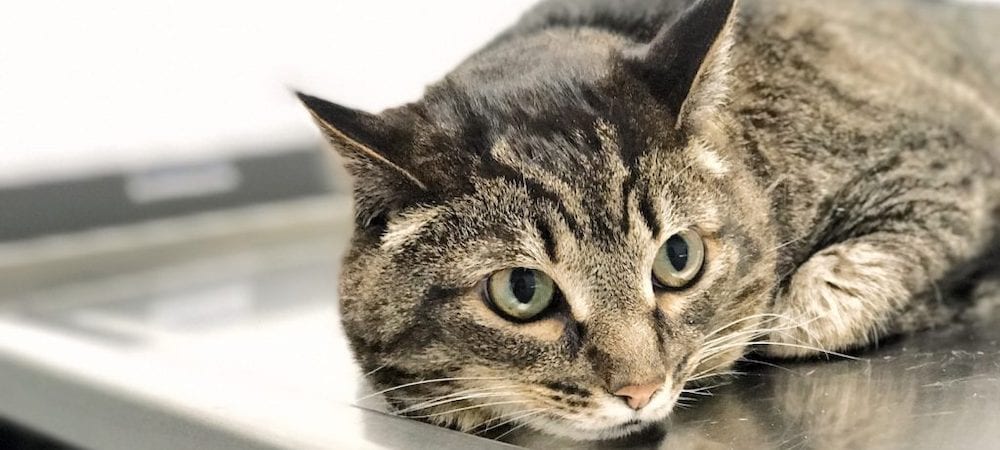Upper Respiratory Infections in Cats

Our feline friends also suffer from colds, known as “upper respiratory infections” or (URIs), in vet and shelter circles. Since the shelter environment isn’t exactly relaxing, and cats are kept in close quarters, URIs are pretty common among shelter populations. The most susceptible are kittens, who have weak immune systems. It’s not uncommon for an entire litter to have an upper respiratory infection and when they do, it can be bad news. Why? Because unlike humans, kittens can easily die from a cold, even under the best care.
Upper respiratory infection symptoms can include:
• Sneezing
• Nasal and Eye Discharge
• Lethargy
• Lack of Appetite
• Dehydration
Sound familiar? While the upper respiratory infection symptoms are basically the same as a human cold, a feline URI is not transmissible to humans. It is, however, transmittable to other cats through the air or direct contact. If you’re fostering a litter of kittens or adult cat with an upper respiratory infection, make sure you keep them separated from other cats you have in the house.
If you suspect your cat is ill, immediately call your vet. And if you happen to adopt a cat with an upper respiratory infection, call the shelter from where you adopted and let them know. They can point you to some discounted clinics in your area or even give you free medicine for your new best friend. One of the worst things you can do is return your cat to the shelter. Cats are like us — they want a quiet safe place to chill when they feel miserable. Plus, they’ll recover a lot quicker in your home with you doting on them than in the shelter.
With proper care and the right environment, your cat will recover within several days or a few weeks, depending on the severity of the infection. You’ll notice a change in a cat’s behavior almost immediately upon them feeling better. A kitten who has an upper respiratory infection doesn’t really act like a kitten. But a kitten without an URI delights in climbing curtains and attacking moving objects.
Your cat should be safe after the infection has cleared, unless of course they happen to cross paths with another feline with an upper respiratory infection. This is where cats are lucky — they don’t have to go to work or school with other sick cats. Once healthy, your cat will be ready to assume his or her normal feline duties, such as meowing in your face first thing in the morning, sprawling themselves across your keyboard as you try to type, and of course, keeping you company when you catch a cold.



